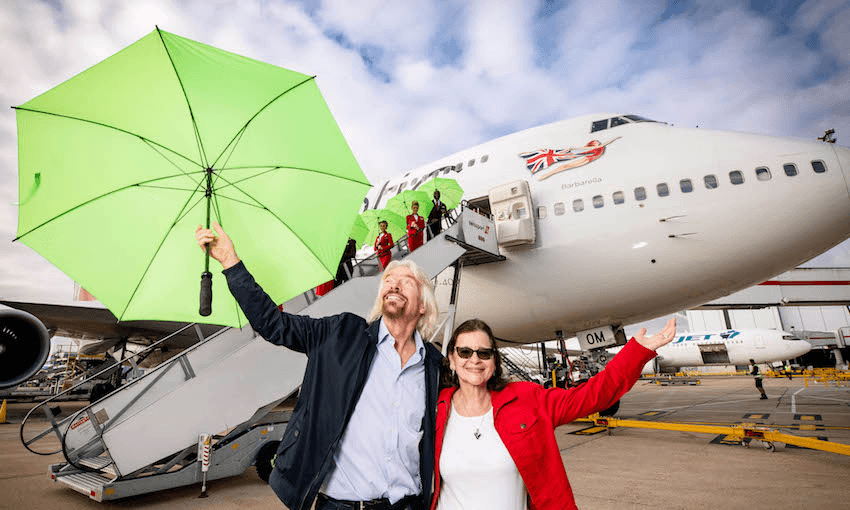Instead of acting like parents suffering from empty nest syndrome, it’s time we realised that new businesses need to grow up, and sometimes that means heading off on their OE, says Vic Crone.
It’s hard to imagine now, but 20 years ago, buying secondhand goods was a bit of a pain. Classified ads in newspapers rarely had photos, and bargains disappeared fast. You didn’t know what had sold and what hadn’t, or who you could trust.
According to urban legend, this is how TradeMe was born: in 1999, a young computer consultant called Sam Morgan was so disillusioned by his search for a secondhand heater for his student flat that he decided to do something about it. Sam was 23 when he created TradeMe. And he was just 30 when he sold it for $750 million.
Five years later, the company was valued at more than $1 billion, and it now appears that several overseas bidders are keen to hit the ‘buy now’ button for nearly three times that amount.
As is usual when deals like this go public, it hasn’t thrilled everyone. Some professional investors are unimpressed that TradeMe could soon disappear from both the New Zealand and Australian stock exchanges. But they are completely missing the point.
TradeMe is a fantastic Kiwi success story, and it’s far from over. The original sum from the sale of TradeMe not only helped to super-charge innovation in New Zealand, it continues to fund a plethora of non-profit and philanthropic projects both here and around the world. It also paved the way for the public to take a stake in the company, and pocket some of its profits.
If Kiwi investors decide to sell their shares, or are required to, that money is highly likely to be reinvested in this country. It’s also worth remembering that it wasn’t just Sam who benefitted from the original TradeMe sale. His father, high-profile economist Gareth Morgan, was among several other people who got in at the start. By the time it was sold to media company Fairfax, there were around 40 people who could claim to have helped build the business into a household name. Almost all of them have since ploughed their significant earnings and invaluable experience into other ventures.
Serial entrepreneur Rod Drury made his original fortune in other startups, but was a director of TradeMe before it was sold. He has gone on to prove with Xero that it is indeed possible to build a globally significant business from New Zealand. And there is a long list of other TradeMe alumni who are now running all sorts of innovative companies, including Star Now, Vend, Webstock, GoodNest, Beauty Bliss, Timely, Rubber Monkey, Planet Goodness, Able Spaces, Populate, and many others.
Some of these have since seeded yet more ventures, and none of this even counts the much wider group of people who were inspired to give something a go themselves.
Key figures at TradeMe have also gone on to play crucial roles investing in other high-growth companies. They include Lance Wiggs, who founded the Punakaiki Fund; and venture capital firm Movac, which is helping to develop the next wave of local technology stars. And TradeMe is just one of many homegrown success stories.
Not all have kept their roots here. Sean Simpson, who founded LanzaTech, is these days based in Chicago, where he recently celebrated a significant coup. His company has developed a biofuel from recycled waste gases that has been used for the first time for a commercial flight. It’s a landmark step towards making commercially viable sustainable jet fuel a reality.
LanzaTech’s departure from Aotearoa was complicated, but it’s questionable whether it would have achieved the same stellar success if it had remained here. In any case, it has already spawned at least two more local start-ups: waste technology company Avertana, and biometallurgy business Mint Innovation. Both operate from the same Auckland building where both LanzaTech and Rocket Lab got their start, and both are showing considerable promise.
Other reasons for a sale are sometimes overlooked. Technological innovation can be short-lived, and sometimes it’s simply smarter for the founders to move on to something else. And sometimes it’s necessary for young companies to do their OE in order to grow. There’s no way a company like Rocket Lab, for example, could reach its full potential without overseas investors and strong international connections.
High-profile sales also send a signal to the world that New Zealand matters. This helps us attract more global expertise, which in turn helps accelerate local growth. Apple’s acquisition last year of Auckland-based wireless power company PowerbyProxi may prove that point.
Multinationals play an important role in growing the capability and quality of R&D activities in New Zealand, and so far Apple is continuing to invest in the Auckland business. Meanwhile, the profits from that sale are also being put to good use.
Such investments don’t always end happily, of course. Innovation is an inherently risky business. But Aotearoa is beginning to develop the kind of innovation ecosystem we badly need to ensure our standard of living keeps up with the rest of the world.
If we do it right, we’ll all be better off. But in the meantime, we seem to need reminding that a sale or public listing is hardly ever the end of an entrepreneurial story. In most cases, it’s just the beginning of another riveting chapter.
This content was created in paid partnership with Callaghan Innovation. Learn more about our partnerships here.
This content is brought to you by Callaghan Innovation, New Zealand’s innovation agency. Talk to Callaghan Innovation about unleashing your ideas and growing your business faster for a better New Zealand.

